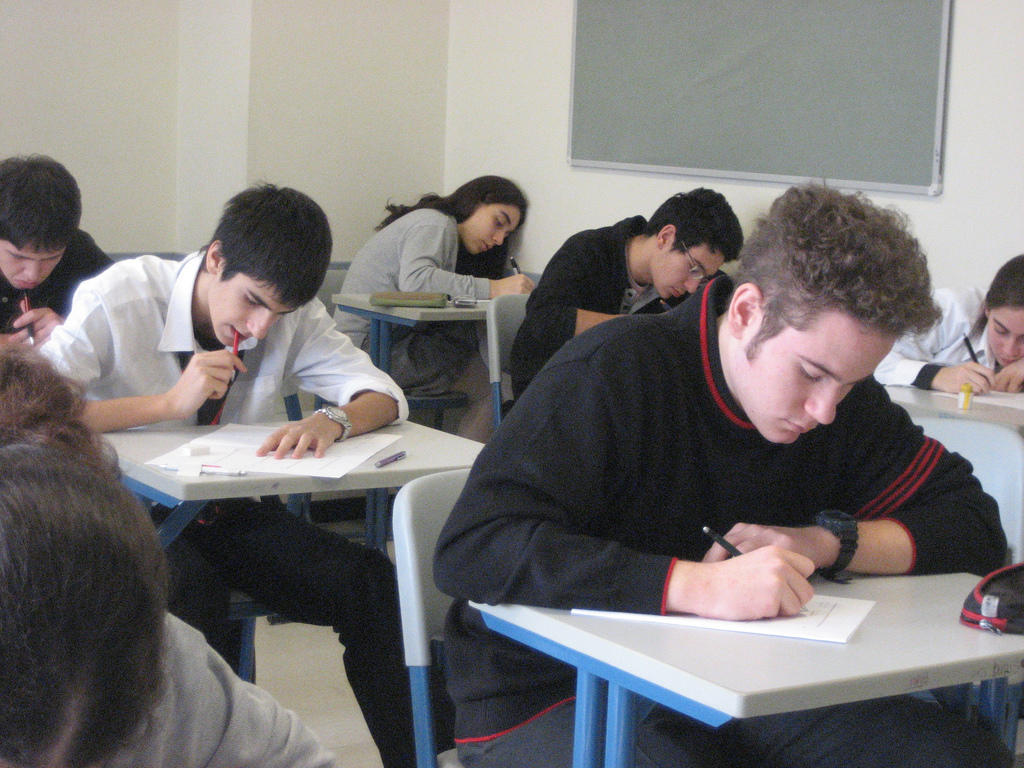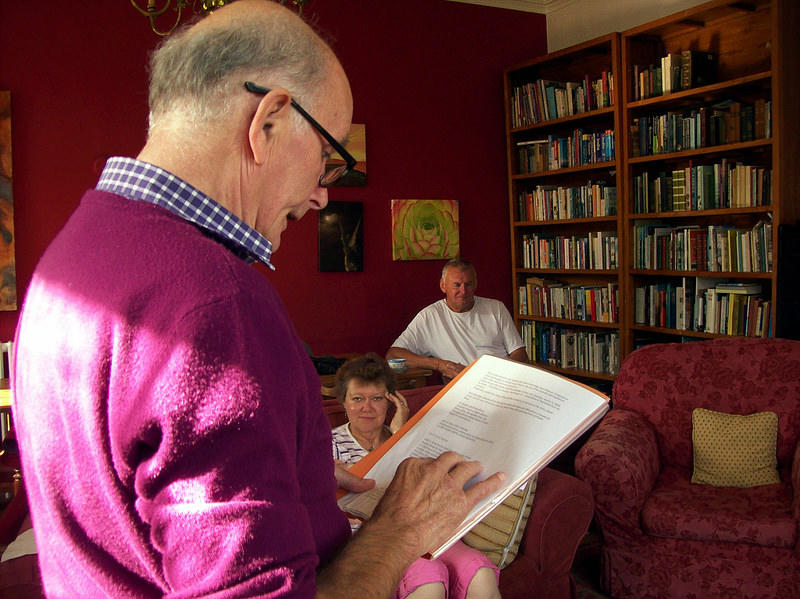Chapters
It is all very well knowing a lot about famous poets and the canonical forms of poetry (like poems by Keats or sonnets by Shakespeare) from different literary movements, but do you know how to look at and analyze poetry in your exam therefore gaining those top marks for your literature criticism?
If you have done your research, then you will already know that both the standard GCSE and A Level exams in Britain ask students to compare two poems, normally of different genres. A comparison article or essay is very different from a direct poetry analysis so below we have listed some tips in this blog to help you to successfully write a critical comparison of two (at times) selected poems depending on which course for students you're enrolled on.
Find poetry classes Glasgow.


Analysing Poems at School
Let's just get down to it, the real reason that you are reading this post is not because of your inexplicable love of poetry or to learn how to write a poem yourself, it is because you want help and to discover ways to tackle this next step in your education - the exam - to be in with a chance of a good grade in English Literature, right?
So, this is why we have done our best to set out some of the key terms for any poetry students to have in their repertoire.
Get a reputable online poetry course here.
Poetry Analysis Terms To Remember
First of all, it's important to know that the below list is just a snippet of the terms that you will come across during your poetry module and not every poem will include examples of each word listed. That said, these are some of the more common poetic techniques and ones that should feature wherever possible when you analyze your poetry.
Couplet
A couplet is a pair of successive rhyming lines that are usually the same length. A couplet can be described as closed when the lines together form a full, grammatical sentence.
Free verse
Free verse is best described as non-metrical and non-rhyming lines, whereby the poet does not adhere to any metrical rules in the composition.
Genre
The word genre is used to group together a class or category of texts that share similar traits, i.e. in form, style of subject matter. Genre isn't a fixed definition as it can change over time and texts can interact with more than one genre at once.
Iamb
Iamb is a metrical foot made up of an unaccented syllable followed by an accented one.
Meter
Meter is the rhythm pattern of stressed and unstressed syllables in verse. The different meters in English poetry include accentual-syllabic, accentual, syllabic, and quantitative.
Find reputable poetry courses here.

Parody
A parody is a comic imitation of another piece of work or style.
Pastiche
A pastiche is a patchwork of lines from another writer destined to be like an imitation. Or, it can be an original composition that mimics another's way or style in a spirit of respect as opposed to satire.
Rhyme
A rhyme is the repetition of syllables, usually at the end of a word / line in a poem which are very obvious when read. The different types of rhymes include Eye rhyme, End rhyme, Feminine rhyme, Identical rhyme, Internal rhyme, Masculine rhyme, Monorhyme, and Pararhyme.
Stanza
A stanza is a group of lines that are separated from others in a poem. In prose writing, you would describe this as a paragraph marking a shift in time or mood.
Stress
You would use this word to describe a syllable uttered in a higher pitch, or with greater emphasis, than others.
Tone
Tone, or mood, refers to the poet's attitude and is interpreted by the reader. A combination of things can affect tone such as vocabulary, syntax, language, rhyme and metric regularity or irregularity.
Verse
Verse is a line of poetry, typically used to refer to poetry that possesses more formal qualities.
For more guidance on poetry terms outside of the classroom, why not read through a poetry magazine from time to time to improve your literary analysis or get involved in national poetry month?
How to Analyse A Poem
It is no good students simply researching all of the poets whose works they have studied on the curriculum (although it also won't do them any harm to know some historical context), they need to emotionally engage with the texts, the theme, and the meaning behind images drawn up.
Here is a list of things to include in your poetry analysis:
- Start at the very beginning. It may seem obvious but begin with the title. What does it mean? Are there multiple interpretations? Is it a play on words? Also, it's good to state the obvious in your first line to show the examiner that you are confident going into this analysis.
- Get to the bones. Look at the form and structure of the poem. Is it organised in stanzas? What length? Do the stanzas vary in length? Why might that be? Do the lines run on?
- Yes, it’s English, but what kind? Consider what vocabulary is being used, and in what way... are any interesting or unusual words or phrases. Think about the style of language – are there any dialect words? Why has the poet chosen to use them? Does the style ever change? Who is the speaker? What is the significance of the speaker or who/what they are speaking of?
- Words and pictures. Does the poet employ any imagery? How do they do this and what images do they conjure up? Are there any similes or metaphors? How about symbolism?
- Talk to yourself. Read the poem out loud – is there a definite rhythm or step to it? How does the rhyming scheme work? Does this emphasise the themes within the poem?
- Context is everything. Think about the background of the poet and the wider historical and cultural context of the poem. Do certain themes run through the writer’s other poems?
The Structure Of A Comparative Essay
As you now know, you will be asked to compare two or more poems in your final GCSE level English exam. You have a choice about which poem(s) you write about, but in some instances, one or more of the texts is set out for you. When it comes to the subject question, this will usually be something quite broad as in the presentation of theme, characters or places.
As with any poetry essay, you must make use of your knowledge of language, literary techniques and the effect of form. The BBC Bitesize website offers a very useful piece of imagery (note the poetry term here!), likening a comparative essay to a sandwich with multiple fillings.
They suggest that the first slice of bread should be your new point, with each filling that follows being an example of how one of the chosen poems illustrates the point you are making.
The other slice of bread which completes the sandwich is your concluding point on the matter. By keeping this method in mind, it reminds you to keep on referring to all of the poems throughout your essay, rather than splitting your essay into two or three chunks each dedicated to a poem. Examiners like to call this process cross-referencing.
Check here for poetry courses London.

Planning The Detail In Your Answer
The five criteria that you should keep in mind during the course of your exam paper and which the examiner will want to see you engage with are:
-ideas
-attitudes and tone
-structure and form
-techniques used by the poets
Write down relevant quotes or notes, linking them where possible to one of the five criteria above when you are planning.
Tips For A Good Essay
-Some pupils find it easier to write their introduction at the end of the article (ensuring they leave themselves enough time), as then they have a clear idea of the journey on which their essay has gone. This isn't easy if you are hand-writing your essay, as it is hard to know how much space you will need.
-Don't write predominantly about one poem. Remember, for example, to complete your points with the final piece of the sandwich, your concluding point that brings all of the preceding points made together.
-Quotations are important to support your ideas in your paper as you express your views, but don't forget to focus on those all-important poetry techniques as they have a place and meaning in their line, stanza or verse.
-Offer your own personal response to the poems, explaining how they make you feel and what message you get from them. If you don't show a connection to the content or style whilst you analyse, then there will be a big piece missing for the examiner and he or she won't be able to award you the best mark.
-If you don't understand a poem, then still do your best to find meaning and to focus on the elements of poetry you do understand, like grammar and punctuation and examples of assonance, onomatopoeia, similes, etc... you can still get some points in here.
We hope that the above has given you a lot to consider as you head into your next year of study, and that it gives you some ideas on how to revise ahead of the English Literature poetry exam!
















Nice Article